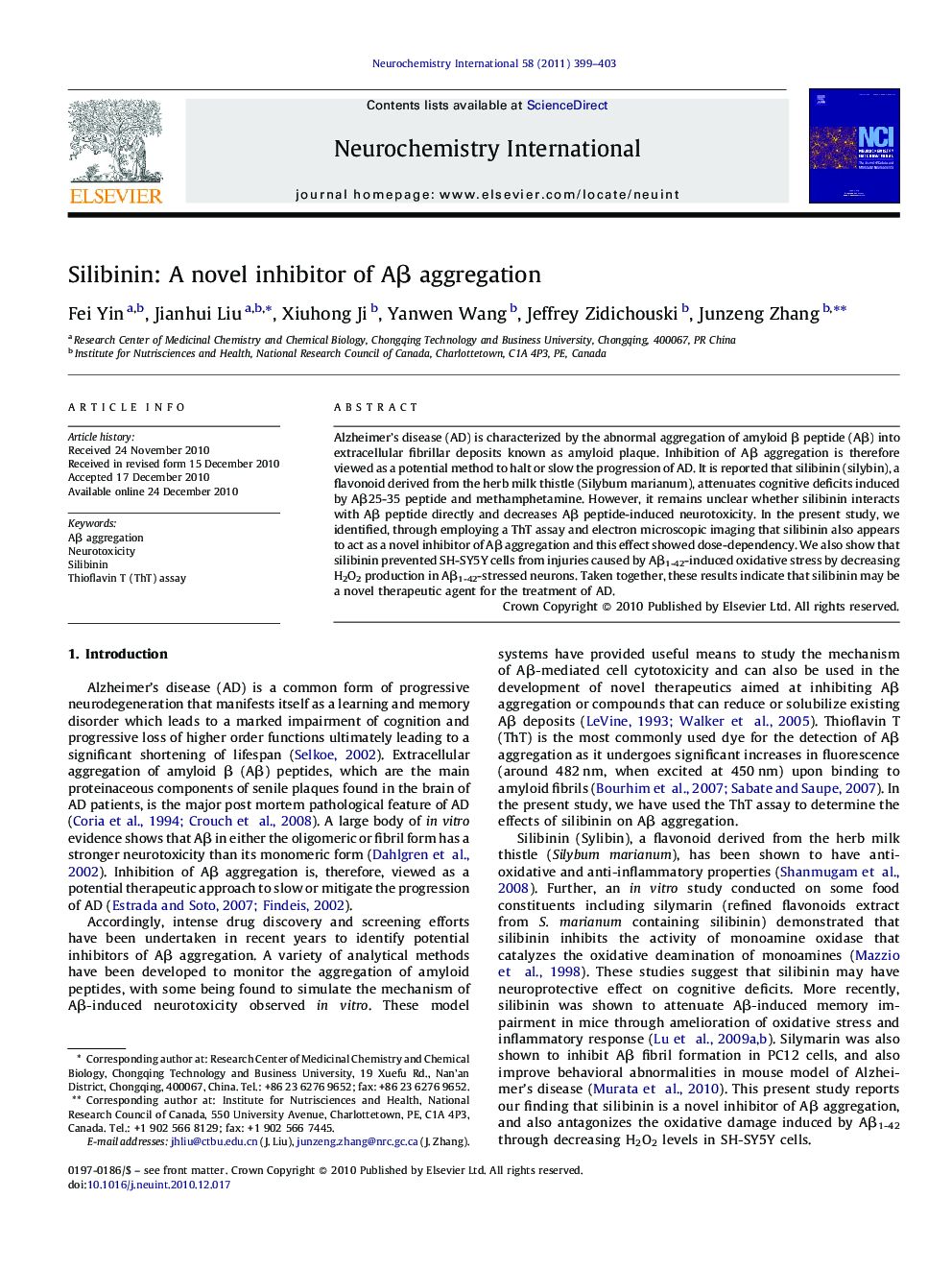| Article ID | Journal | Published Year | Pages | File Type |
|---|---|---|---|---|
| 10958334 | Neurochemistry International | 2011 | 5 Pages |
Abstract
Alzheimer's disease (AD) is characterized by the abnormal aggregation of amyloid β peptide (Aβ) into extracellular fibrillar deposits known as amyloid plaque. Inhibition of Aβ aggregation is therefore viewed as a potential method to halt or slow the progression of AD. It is reported that silibinin (silybin), a flavonoid derived from the herb milk thistle (Silybum marianum), attenuates cognitive deficits induced by Aβ25-35 peptide and methamphetamine. However, it remains unclear whether silibinin interacts with Aβ peptide directly and decreases Aβ peptide-induced neurotoxicity. In the present study, we identified, through employing a ThT assay and electron microscopic imaging that silibinin also appears to act as a novel inhibitor of Aβ aggregation and this effect showed dose-dependency. We also show that silibinin prevented SH-SY5Y cells from injuries caused by Aβ1-42-induced oxidative stress by decreasing H2O2 production in Aβ1-42-stressed neurons. Taken together, these results indicate that silibinin may be a novel therapeutic agent for the treatment of AD.
Keywords
Related Topics
Life Sciences
Biochemistry, Genetics and Molecular Biology
Cell Biology
Authors
Fei Yin, Jianhui Liu, Xiuhong Ji, Yanwen Wang, Jeffrey Zidichouski, Junzeng Zhang,
